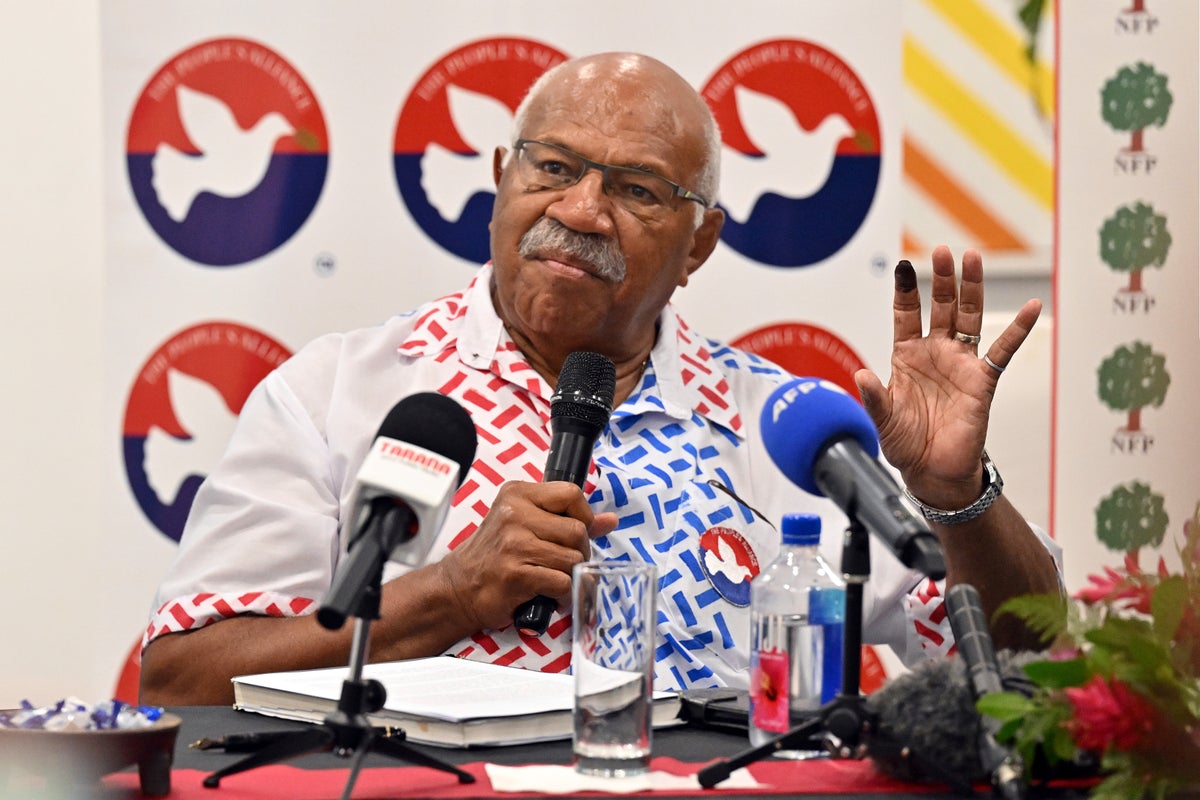
Vote counting finished in Fiji's general election Sunday but there was no clear winner, and various political parties are now negotiating to form a coalition government.
The election had pitted two former coup leaders against each other.
Sitiveni Rabuka, who led a coup back in 1987 and later served as an elected prime minister in the 1990s, emerged as the main challenger to Prime Minister Frank Bainimarama, who has held power for the past 16 years.
Rabuka’s People’s Alliance Party and allies the National Federation Party won about 45% of the vote combined. Bainimarama's Fiji's First party, meanwhile, won about 43%.
That has left both sides seeking to form a coalition with the Social Democrat Liberal Party.
The liberal party's general secretary Lenaitasi Duru told media they were having meetings with both sides.
“The first round of negotiations was done yesterday,” Duru said. "We are expecting more negotiations later this afternoon.”
He said the party's priorities included Indigenous affairs and education.
“Right now we’re sitting in the middle," Duru said. "We’re watching and waiting for what is on offer, then we’ll make the decision based on what’s best for the nation.”
Earlier, on Friday, Rabuka's party and four others had said they were launching a nationwide petition because they had no faith in the integrity of election officials.
But an international group that monitored the election said Friday it did not observe any voting irregularities and the process was transparent and credible.
The dispute had threatened to destabilize the Pacific nation’s fragile democracy, which has been marred by four military coups in the past 35 years.
Rebekha Sharkie, an Australian lawmaker and co-chair of the 90-strong Multinational Observer Group, told reporters in Fiji they had unrestricted access to the election process and didn't observe any irregularities. She said the group had assessed that Fijians were able to vote freely.
Rabuka’s concerns came after his party had been leading in preliminary results posted online after polls closed, but then the results app stopped working.
Election officials said they’d found an anomaly in the system and needed to reload the results. When the next batch of results was posted, Bainimarama’s party was in front.
Election officials later stopped their provisional count and switched to a final count.
Bainimarama first seized the top job by force in 2006 and later refashioned himself as a democratic leader by introducing a new constitution and winning elections in 2014 and again in 2018.
Fiji is known abroad as a tourist paradise that is dotted with pristine beaches and filled with friendly, relaxed people.
However, the past few years have proved tough for many people in the nation of just under 1 million, after tourism evaporated when COVID-19 hit and the economy tanked. The World Bank estimates the nation’s poverty rate is about 24%.







